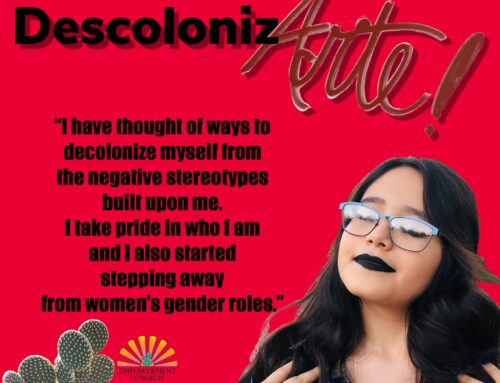As a teen you know that these years are confusing. You might ask yourself how does the world and society work, how do I find my identity, and how do I fit into it all? Our societal norms have told us that you don’t know the mechanics of our world’s realities, and because of this, you shouldn’t have a say in how our society should run. Time and time again, though, teens like you have defied this stereotype. During pivotal moments in history, youth have stood up and raised their voices while many adults would not and did not.
The fact of the matter is, you do have power and you can use that power to shape the future. Perhaps, you want to be more active but it is intimidating and it can be confusing about where and how to start. Here are a few tips that could help you find that starting point and maintain motivation to go out and do great things.
Find and understand your why: You already know you want to be an activist but have you ever stopped to think why? Understanding this could help you become a better activist. That sense of purpose makes it easier for you to find the causes and groups you genuinely care for, and in turn, your work will be more meaningful and intentional.
Be creative: A lot of activist work is about telling a story so that others can understand and see different points of view. When you are telling a story, be creative with it. If you are an artist, use that to express what you want others to know or feel. Be creative on social media, find unique ways to present a story with different graphics and videos. If you are a writer, author poems, blogs, letters, and statements. However, you choose to tell a story, make it unique.
Find allies: Having a strong community that shares the same values as you is an empowering thing. You don’t have to fight these battles alone. Sign up for a local youth organization, program, or club. You can even find allies at school, online, and in your neighborhood.
Talk with your parents: If you can, talk to your parents about your desire to become an activist. Discuss the various issues that concern you. You may think that your parents or guardians might disapprove or make your feelings invalid, but you could be surprised at how understanding and helpful they may be. Of course, this isn’t the case for everyone but understand that your parents and guardians have a lot of unlearning and learning to do, and you could be the one to help them with that. Being honest and open is an essential part of building a strong foundation.
Create spaces & join ally spaces (use your voice): Being an activist is about stepping up and speaking about issues affecting your communities. Never let anyone make you feel like your voice is too loud and unnecessary. Being loud about issues is a vital tool to have. Utilize the tools you have to create spaces where others can use their voice too. This could be a space online or part of your community spaces such as events, protests, and meetings. Also, attend and participate in other spaces your fellow allies have created as well.
Donate your time: You might not have money to donate to the organizations you feel are making a difference. That’s okay; just donate your time. Find opportunities with organizations and programs in your community to donate your time. For example, if you are passionate about keeping the environment clean and healthy, you might begin by cleaning up your local park or neighborhood.
Raise money: Raising money for organizations and efforts you care about can make a difference. Try organizing a fundraiser like a burrito sale, or make and sell items. You could even organize fundraiser events like plays, activity days, and sports events to raise money.
Take care mentally and physically: Activism work can take a toll on your mental and physical health. Make sure you are making time to take care of yourself. Meditate, eat healthily, and move your body to help you stay healthy and take some time to do things you love outside of activism. For example, watch your favorite movies, eat something you love, make time to hang out with friends and family, go shopping, read a book, just do things that bring you great joy.
Don’t use activism for “clout”: If you’re using activism just to gain more followers, likes, retweets, etc., then you’re not serious about real activism; you’re concerned with performance activism.
These are just some things that could help you start your activism journey. You don’t have to dive in headfirst nor attempt to make significant changes right away. The small steps and changes are important and you are capable of so much. Your journey may be challenging but If not you, who? And If not now, when?






